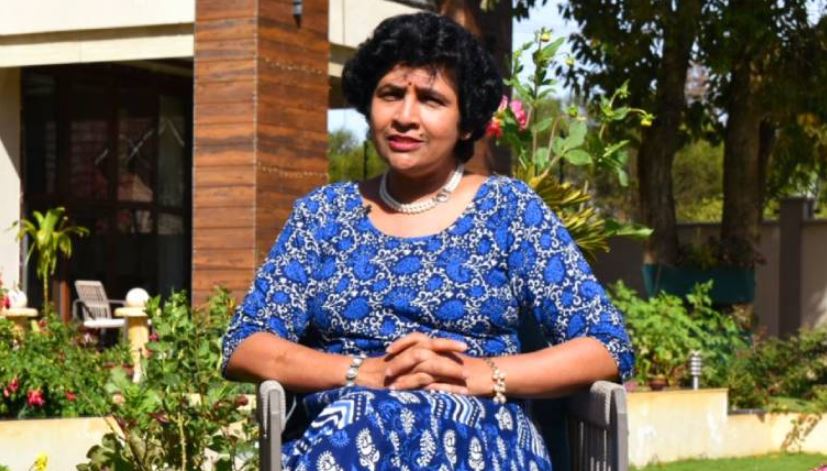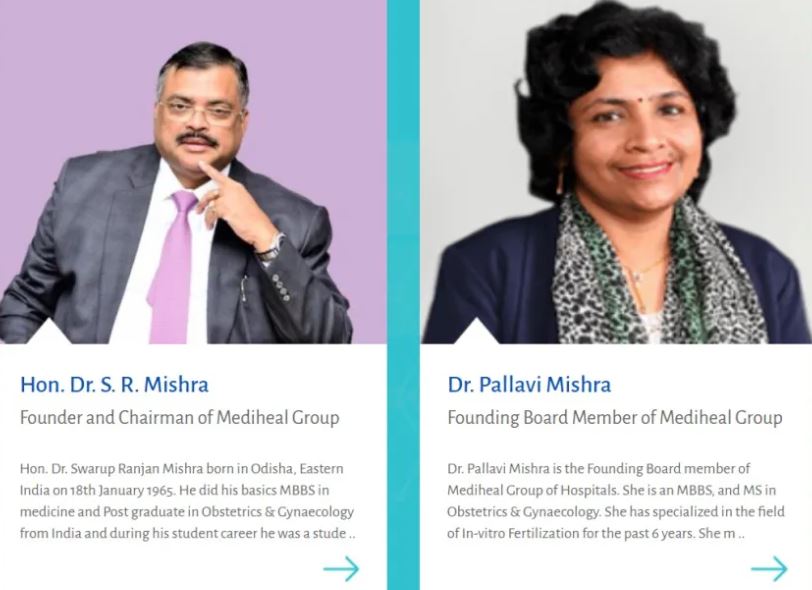 Dr. Pallavi ‘Chepchumba’ Mishra is a gynaecologist, lecturer, and founding board member of Mediheal Group of Hospitals. She is also wife to Kesses MP Swarup Mishra.
Dr. Pallavi ‘Chepchumba’ Mishra is a gynaecologist, lecturer, and founding board member of Mediheal Group of Hospitals. She is also wife to Kesses MP Swarup Mishra.
Dr Mishra spoke to EveWoman about her focus on helping women with infertility issues and leaving India to settle in Eldoret.
You and your partner are both doctors, how is that?
It is not as difficult as people may think. It is interesting because we complement each other’s work and we learn from each other.
What is the one lesson or principle would you advise career women to live by?
A career is very important. I think every woman should endeavour to have one and this can happen at any time of her life. It is very important for women to generate income for themselves. Family is also very important but you need to balance.
Sometimes you have to make difficult choices. I couldn’t join my husband in Germany when he got an opportunity to train in surgery, I had a small child at home and I didn’t have any family members to support me.
Your husband is a politician, have you thought of going into politics at any point?
No, I do not even accompany my husband to his political errands. I prefer to stay back.
How did the two of you meet?
We come from different parts of India, we met when he came to do his post-graduate in the same college that I was enrolled in.
At what point did you decide to relocate to Kenya?
We came to learn about Kenya while in Mumbai, a lot of patients came to Mumbai from Kenya, and most had kidney problems. I got a job in Kenya and that is why we came here. I started working in Eldoret.
The good thing about Kenya is that they accept outsiders so lovingly and easily. They respect us, so settling in was not difficult.
Infertility is still frowned upon in some communities, how do you deal with myths that come with it in your practice?
Everything takes time, proper examination is important but nature takes time to take its cause. The world over, it is known that infertility is 30 per cent because of women and 30 per cent because of men; 30 per cent is because of both of them. The remaining per cent is unexplained but depends on how much you investigate it.
Infertility is a problem, a lot of people are accepting it as a problem. More couples are coming early for checkups. Delaying fertility tests means you will come late and will always be in a hurry to get results and that will not happen.
What is the story behind Mediheal Group of Hospitals?
I am a founding board member of the Mediheal Group of Hospitals. I work there part-time as a consulting gynaecologist and obstetrician.
We started Mediheal in Eldoret and now we have six branches; two in Nairobi, one in Eldoret, one in Nakuru. We started the hospital because we saw a lot of potential to grow and bring in technology that is not available in Kenya at the time. Medicine is an evolving subject and technology is advancing, therefore we needed to keep reinventing.
At the time, Eldoret did not have good facilities, being a gynaecologist, we didn’t like the fact that women’s health was not addressed properly. That’s why we started Mediheal hospitals.
How did Covid-19 affect your business?
We had difficult moments. As a private hospital, we need a minimum income that can support the salaries of our employees. Whatever we generate is what feeds everyone. We have a very big workforce, and that was a very big challenge for a couple of months.
We were able to sustain that period and hope to also go through this year.
When you look back at your journey to where you are, would you say you have achieved your childhood dreams?
No! As a child, I never dreamed of becoming a doctor or anything close to that. The majority of Indian women back in the day were housewives.
I thank my father who always told me that he didn’t want me to be a housewife. My father told me to get a professional career, I grew up with that in mind.
When I passed the entrance exam to do medicine, I was very happy, I saw it as a great opportunity because no one in my family is a doctor.
Why did you choose fertility as a line of practice?
Fertility is exciting because it is extremely satisfying as a subject. The smile I see when women give birth, especially after struggling for many years. It is extremely satisfying. The smile is worth millions.
How would you describe the fertility rates in Kenya?
Infertility is on the rise, mostly because of our lifestyle. Most women are career-oriented, they delay conceiving which sometimes affects the fertility clock.
What challenges do you face as a gynaecologist?
Patients come to gynaecologists as an afterthought. I encourage them to visit gynaecologists early as couples when they are having a difficult time conceiving.
Women are often blamed for infertility, what’s your take?
It takes a while for people to understand. I think we should create a lot of awareness that fertility is not a problem for women alone.
What is your take on the stigma around infertility?
It is important to come for proper consultation. Some cases do not even require medication, some couples stay apart, they don’t meet often, and this also affects fertility.
How affordable or expensive is treating infertility?
There are conditions that cause infertility, these are real medical problems because infertility is not diagnosed. Underlying problems have long-term effects on women’s fertility health. Insurance companies do not consider infertility as a condition.
We know Mheshimiwa is called Kiprop back in Eldoret, do you have a kale name?
Yes, they call me Chepchumba, because I was born through C-section.
Parting shot, your hobbies?
Plants have a way of relaxing my mind. Any time I need a break from work or a stressful week, my garden and plants do that for me.
Finally, partners should always support each other and help each other grow no matter what challenges they are going through.









